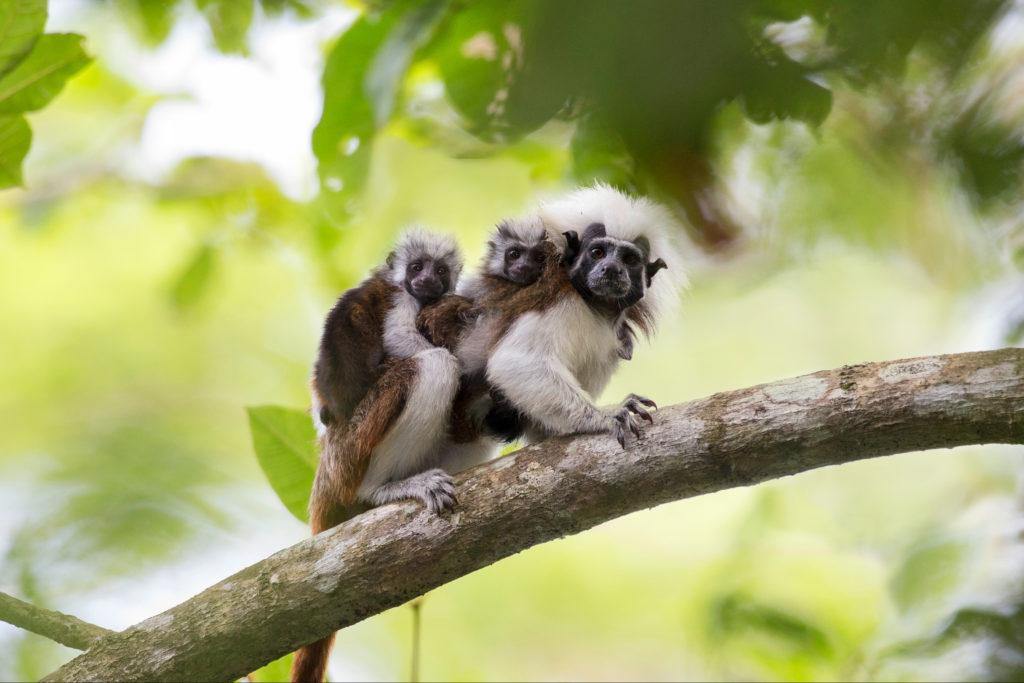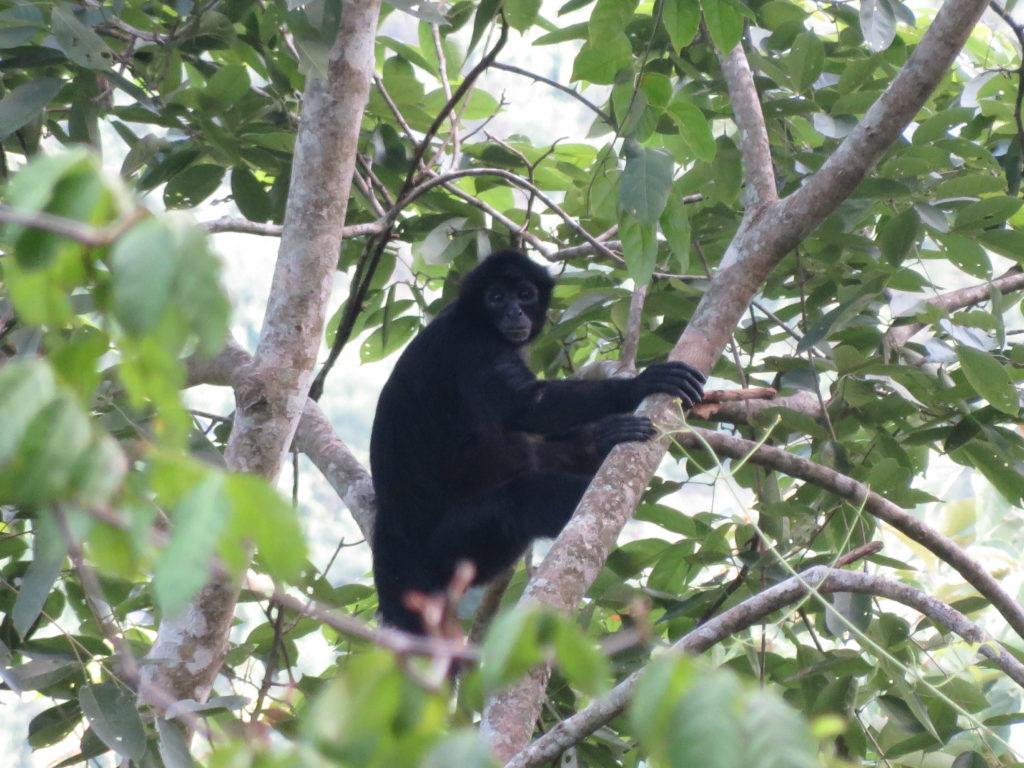Light pierced through the canopy and shined on the hands of Luis Centena, tending the soil of Proyecto Tití’s (PT) sapling nursery. Collecting seeds and propagating saplings are key measures in PT’s long-term plan to rebuild the forests for cotton-top tamarins, one of the world’s rarest primates. As a Field Assistant, Luis often sees cotton-tops bouncing between treetops, but a new primate has caught his attention in recent months. Luis and PT staff have spotted the critically endangered black-headed spider monkey, a new addition to the cotton-top’s forest. The presence of this lanky monkey is a good sign that the forests are healthy enough to support such a rare species. Now, as Luis tends to the new trees in PT’s nursery, he is reminded that he is truly shaping the future of endangered wildlife in northern Colombia’s forests.
Luis took a roundabout path to conservation. He spent twenty years as an illegal logger before changing his stripes, yet it was cutting down trees that taught Luis so much about them. In 2019, he joined PT and brought a wealth of knowledge about identifying specific trees and locating their seeds. Luis now grows precious saplings to make amends for the actions of his youth, taking pride in every new tree he propagates. To date, PT has planted over 100,000 saplings within 494 acres of forest corridors. They have achieved this feat with the help of 150 local families who own land in the region and have agreed to help restore habitat for cotton-tops, which are found only in Colombia.
The true miracle of forest restoration is that, while done in the name of cotton-tops, other wildlife will also benefit. This year’s sightings of the black-headed spider monkey have proven that forest restoration is creating safe habitat for many animals in need of protection. PT staff have also come across Dahl’s toad-headed turtles, another critically endangered species long absent from the area until the start of their forest restoration project, and PT has heard rumors that the rare blue-billed curassow has also returned. By protecting the cotton-tops’ home, PT is welcoming other threatened wildlife to be their neighbors.
Establishing interconnected forests requires patience. It takes 10 years for forests to recover enough to provide adequate food for cotton-tops, and 20 years for trees to grow tall enough to keep them safe from predators. Unsustainable agriculture, illegal logging, and forest fires can hinder recovery and prolong this process. PT is currently in the second year of their five-year plan to double both the number of trees planted and acres protected by 2023.
Proyecto Tití is pleased with their project’s success and confident in its continued potential. Luis Centena and PT’s restoration team of twelve are responsible for hundreds of thousands of new trees that will provide food and shelter to cotton-tops, black-headed spider monkeys, and countless other species. Most of all, Luis is proud of the future that he and PT are building, one tree at a time.





